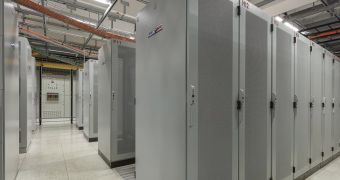Building FGBAs (Field Programmable Grid Array) since the early '80s, Altera established itself as a major circuit logic designer working tight with Intel since its conception, having Intel manufacture its circuit boards until a new change in FGBA outsourcing has prompted Intel to acquire its former partner, Altera.
But Altera was no small player in this industry. During the course of its history, it managed to develop highly regarded FPGAs like the 40-nm Stratix IV and 14-nm logic devices including the user-friendly 28-nm Stratix V FPGA that became known for its user friendliness in partial core reconfiguration at customer's request.
In May 2013, Altera managed to acquire embedded power chipmaker Enpirion for $134M (€120M) in cash and since that time, Enpirion has been incorporated into Altera by becoming its own product offering within the Altera portfolio of products.
Although with Xilinx remaining its main rival, Altera reported healthy revenues of $1.93 billion (€1.74 billion) for their 2014 fiscal year, prompting Intel to dig deep in its pockets to acquire its former partner.
New opportunities lie ahead for Intel
This acquisition will be able to inject new life into specific Intel products like Xeon or the booming IoT market where the need for customizable CPUs is high along a wide range of possible customers.
It is expected that the new customizations available to Intel's processors after this acquisition will probably boost Intel's growth potential in domains previously hampered by either lack of visibility or industry relevance.
Even though Intel's PC sales have slowed down in the last fiscal quarter, it’s is likely that this downtrend will be compensated by the new FPGA horizon of growth following the acquisition of Altera.
According to Intel "Altera will become an Intel business unit to facilitate continuity of existing and new customer sales support." Apparently, Intel will take over Altera's ARM and power management products.
Intel expects to finalize the transaction within the next six to nine months.

 14 DAY TRIAL //
14 DAY TRIAL //